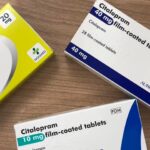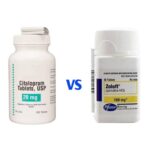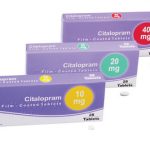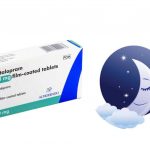List of Citalopram Side Effects In Women

Being sad is a normal reaction to difficult times in life. But usually, the sadness goes away with a little time. Depression is different—it is a mood disorder that may cause severe symptoms that can affect how you feel, think, and handle daily activities such as sleeping, eating, or working. Depression is more common among women than men, likely due to certain biological, hormonal, and social factors that are unique to women.
Depression can impact every area of a woman’s life—including your physical health, social life, relationships, career, and sense of self-worth—and is complicated by factors such as reproductive hormones, social pressures, and the unique female response to stress.
Women also tend to experience depression differently than their male counterparts.
Some of the most common symptoms of female depression include:
• not enjoying the same hobbies or interests that you once did, or not getting the same amount of pleasure from these activities
• not being able to focus for very long
• losing your appetite regularly
• losing an abnormal amount of weight at one time
• feeling weak or exhausted with no clear cause
• feeling overwhelmingly guilty
• feeling like you’re not worth anything or are inadequate
• feeling anxious or irritable
• losing feelings of hope for the future
• crying without any specific cause
• not being able to sleep well at night
• having dramatic mood swings
• having thoughts about death
What is citalopram?
Citalopram is a medication used to treat depression. It may be used as part of a combination therapy. This means you may need to take it with other medications.
Citalopram was first synthesized in 1972 by chemist Klaus Bøgesø and his research group at the pharmaceutical company Lundbeck and was first marketed in 1989 in Denmark. It was first marketed in the US in 1998. It is also available in many countries for anxiety disorders, including obsessive-compulsive disorder and social anxiety disorder.
How it works
Citalopram is in a class of antidepressants called selective serotonin reuptake inhibitors (SSRIs). It works by increasing the amount of serotonin, a natural substance in the brain that helps maintain mental balance. Having more serotonin in your brain can improve symptoms of depression.
How should women take Citalopram?
The dose of citalopram for adult men and women is the same. Citalopram comes as a tablet and a solution (liquid) to take by mouth. It is usually taken once a day, in the morning or in the evening, with or without food.
The recommended starting dose is 20 mg by mouth once daily. The maximum recommended dose is 40 mg by mouth once daily.
Take citalopram at around the same time every day. Follow the directions on your prescription label carefully, and ask your doctor or pharmacist to explain any part you do not understand. Take citalopram exactly as directed. Do not take more or less of it or take it more often than prescribed by your doctor.
Your doctor may start you on a low dose of citalopram and gradually increase your dose, not more often than once a week.
It may take 1 to 4 weeks before you notice the full benefit of citalopram. Continue to take citalopram even if you feel well. Do not stop taking citalopram without talking to your doctor. Your doctor will probably decrease your dose gradually. If you suddenly stop taking citalopram, you may experience withdrawal symptoms such as mood changes, irritability, agitation, dizziness, numbness, tingling or electric shock-like sensations in the hands or feet, anxiety, confusion, headache, tiredness, nausea, sweating, shaking, frenzied or abnormally excited mood, and difficulty falling asleep or staying asleep. Tell your doctor if you experience any of these symptoms while you are decreasing your dose of citalopram or soon after you stop taking citalopram.
Citalopram Side Effects In Females
Side effects happen when citalopram treatment causes a problem because it does more than treat the target issue. The impact can range from minor to severe and life-threatening.
Although a number of studies have reported that females respond better to serotonergic antidepressants like citalopram than males. Unfortunately, they also report more side effects than males
Common citalopram side effects in females include:
- Vaginal lubrication issues
- Dizziness
- Drowsiness
- Dry mouth
- Thirst
- Increased sweating
- Increased urination
- Delayed orgasm
- Loss of appetite
- Nausea
- Diarrhea
- Heavy menstrual bleeding
- Constipation;
- Agitation
- Decreased sex drive
- Weakness
- Insomnia
- Uncontrolled muscle movement
- Inability to reach orgasm
Women should also inform their doctors immediately if they notice new or sudden changes in mood or behavior, including new or worsening depression or anxiety, panic attacks, trouble sleeping, or if they feel impulsive, irritable, agitated, hostile, aggressive, restless, more active or talkative, or have thoughts about suicide or hurting yourself.
This is not a complete list of side effects and others may occur. Call your doctor for medical advice about side effects. You may report side effects to FDA at 1-800-FDA-1088.
How to cope with citalopram side effects as a woman
Not every woman has side effects but side effects of citalopram can cause problems, particularly for women taking the medication for the first time. Research shows that more than half of all people who take antidepressants experience bothersome side effects.
The fear of side effects should never prevent you from getting treatment for depression. The following tips can help a woman cope with the various side effects of citalopram:
Patience: when starting a citalopram treatment some transient side effects such as nausea, diarrhea, insomnia, and sedation that may appear in the first week or two simply stick with your treatment plan for a while longer and try some practical strategies for coping in the meantime before the side effects abate.
Sexual Adjustments: For women who experience reduced sex drive and difficulty reaching orgasm while on citalopram treatment, adjusting their sexual routine may be helpful. For example, you may need a longer period of foreplay before having sexual intercourse. You can also use can use lubricants to eliminate vaginal dryness or use other tools to make sex more comfortable. Avoid over-the-counter herbal supplements that promise increased sexual desire and function because they are not regulated by the Food and Drug Administration (FDA). Some could interact with citalopram and cause more dangerous side effects.
Embrace Sleep Promoters: Discuss with your doctor about taking a sedative or sleeping pill that might help you sleep better, you should also reduce your caffeine intake and get more exercise during the day.
Regardless of the side effects that might be troubling you, most people taking citalopram also benefit from therapy to help them cope with the challenges in their lives and recover from depression.
The most important thing to remember is that you should never stop taking your medication without your doctor’s supervision. Stopping suddenly can cause other negative side effects — get your doctor’s advice about cutting down or switching to another medication.





